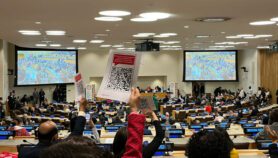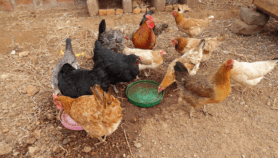By: Wagdy Sawahel
Send to a friend
The details you provide on this page will not be used to send unsolicited email, and will not be sold to a 3rd party. See privacy policy.
A vaccine against the deadly Marburg virus has surprised researchers by protecting monkeys given the jab after, rather than before, being infected.
The findings, published online yesterday (27 April) by The Lancet, suggest that the vaccine might be useful if deployed rapidly during the rare but devastating outbreaks of Marburg virus.
Last year, a major outbreak struck Angola, killing scores of people (see Worst ever outbreak of Marburg virus hits Angola).
Marburg virus is closely related to the Ebola virus. There are no effective drugs or vaccines against either virus, and treating the fever and internal bleeding they cause rarely works.
The researchers, led by Thomas Geisbert of the US Army Medical Research Institute of Infectious Diseases, showed last year that their vaccine was 100 per cent effective at protecting monkeys from both viruses (see Ebola and Marburg vaccine '100% effective in monkeys').
In the latest tests, the vaccine was given to five rhesus monkeys about 30 minutes after they were infected with Marburg virus. The monkeys all survived for at least 80 days, while three monkeys that did not receive the vaccine died after 12 days.
The team hopes their approach will have potential for vaccines to protect people from viruses such as Ebola and Marburg, as well as for treating people already infected.
But Stephan Becker of the Robert Koch Institute in Germany, writing in an accompanying commentary, says that more research is needed to explain how the vaccine enabled the monkeys to survive being infected.
Reference: The Lancet 6736, 68547 (2006)













